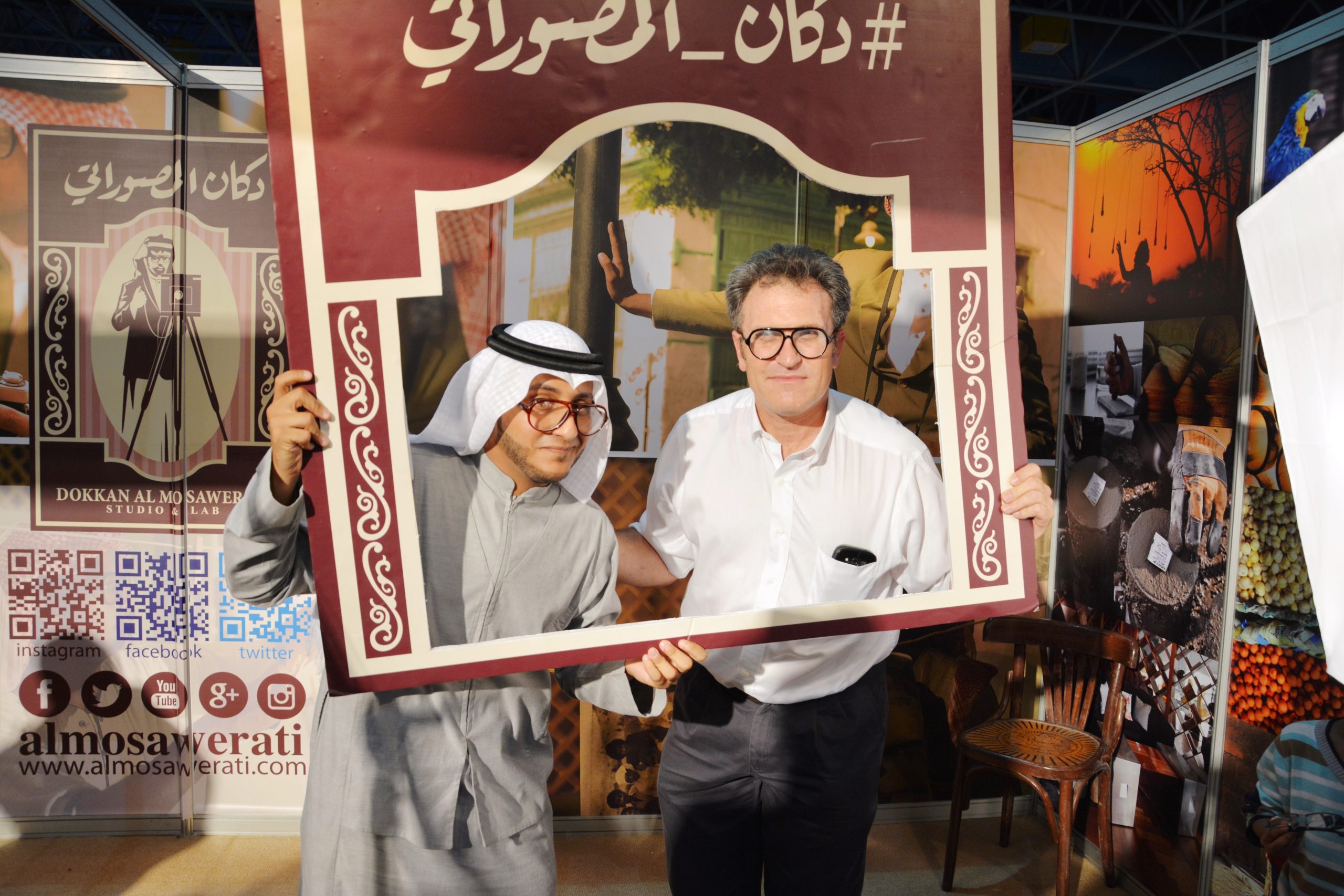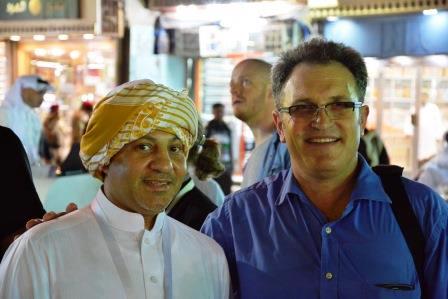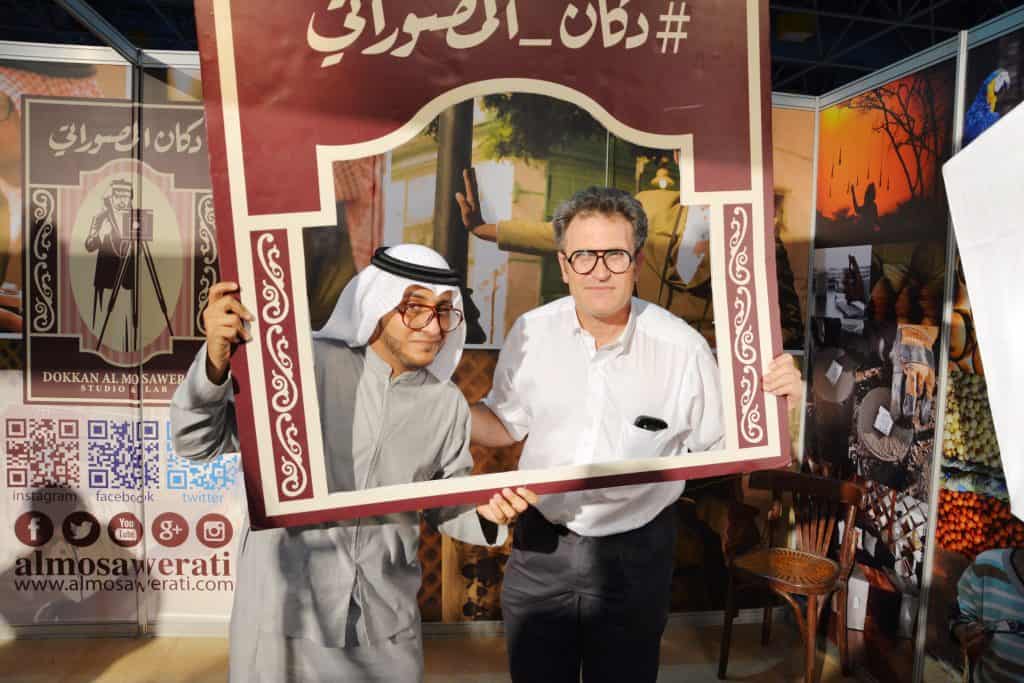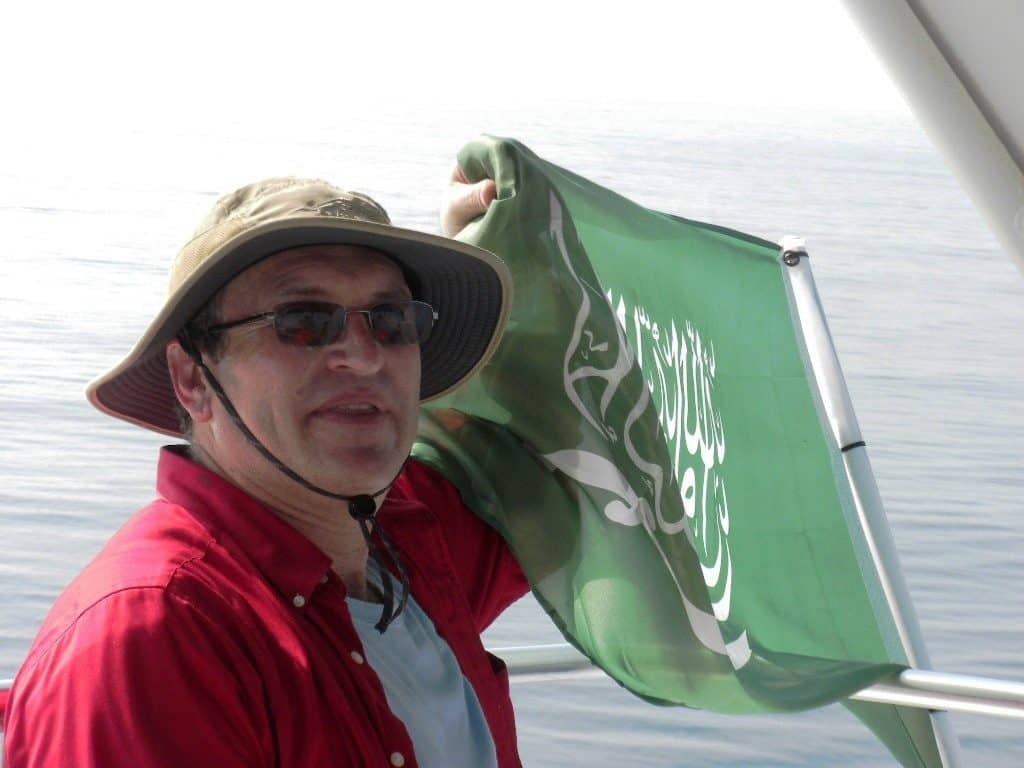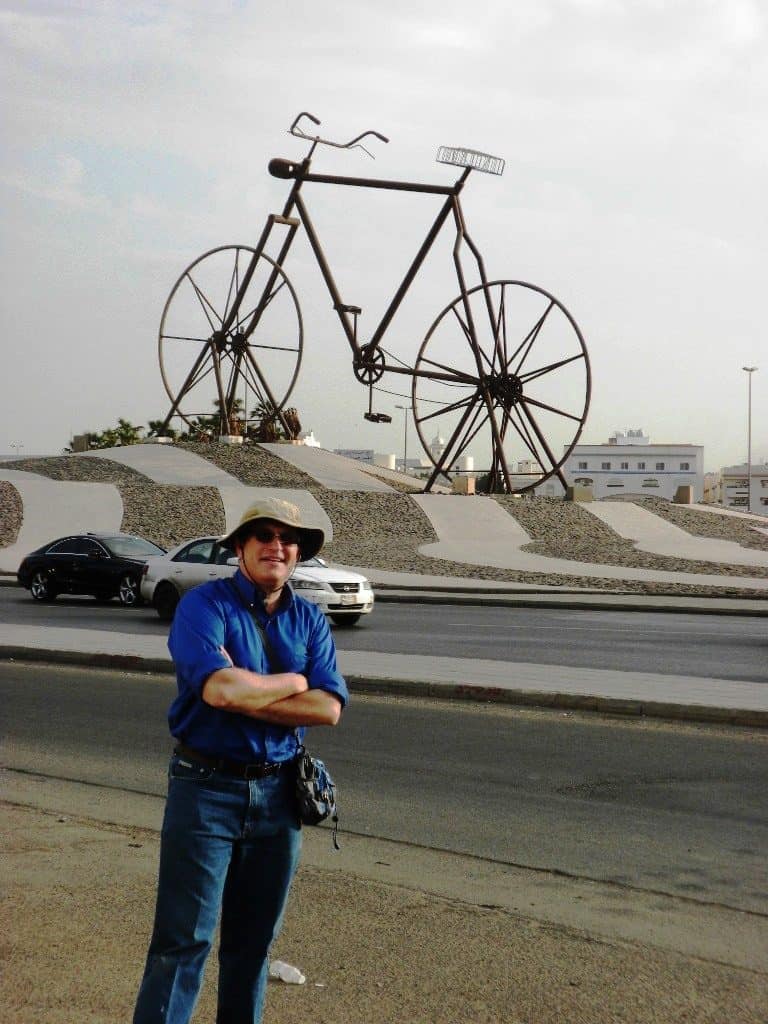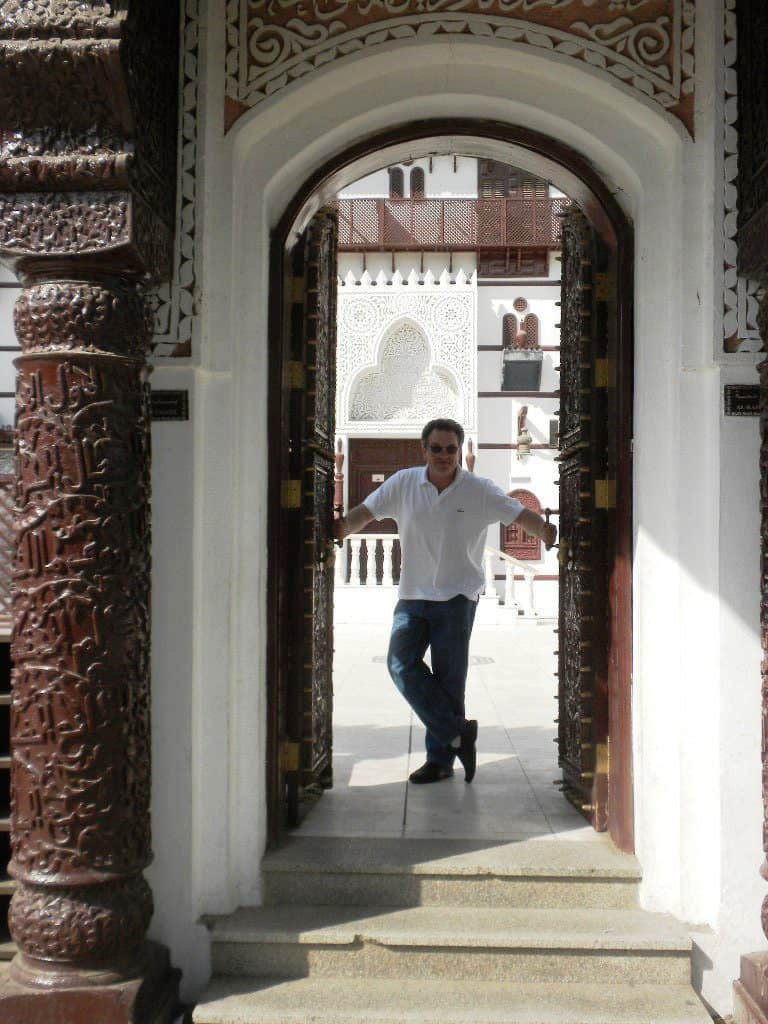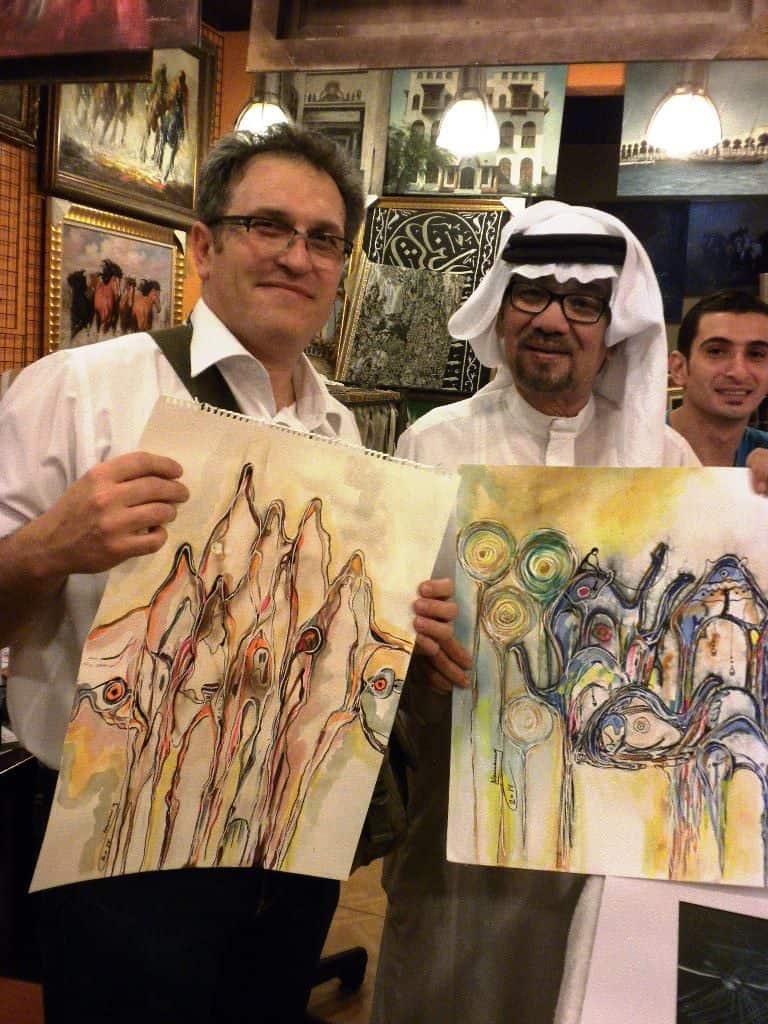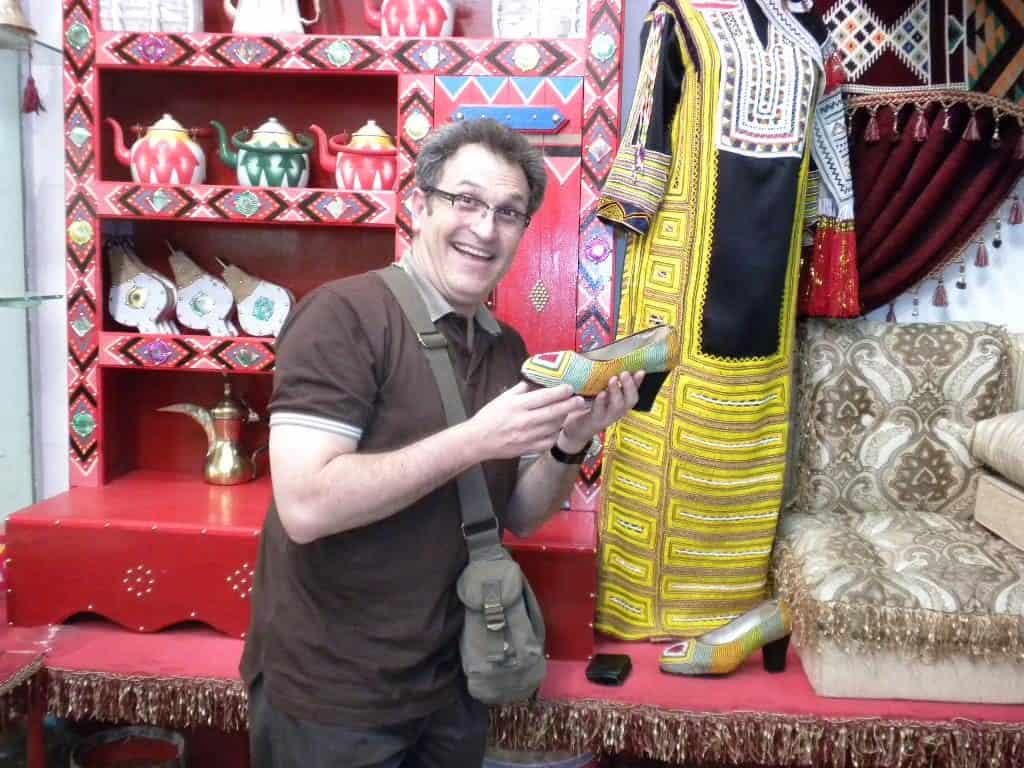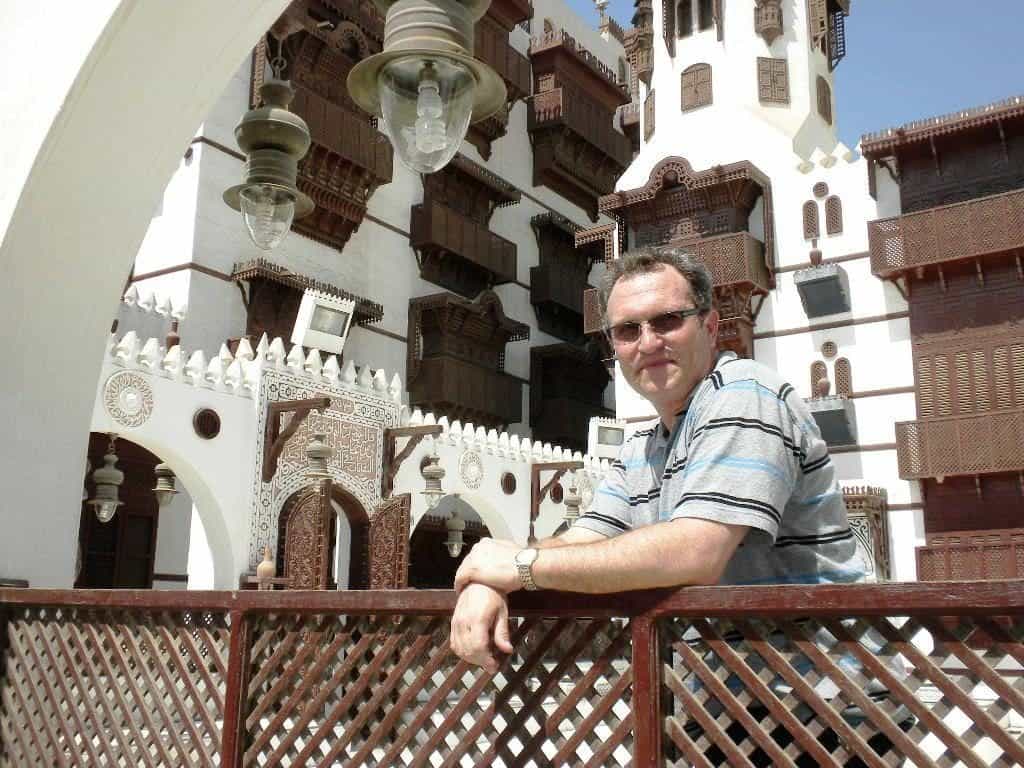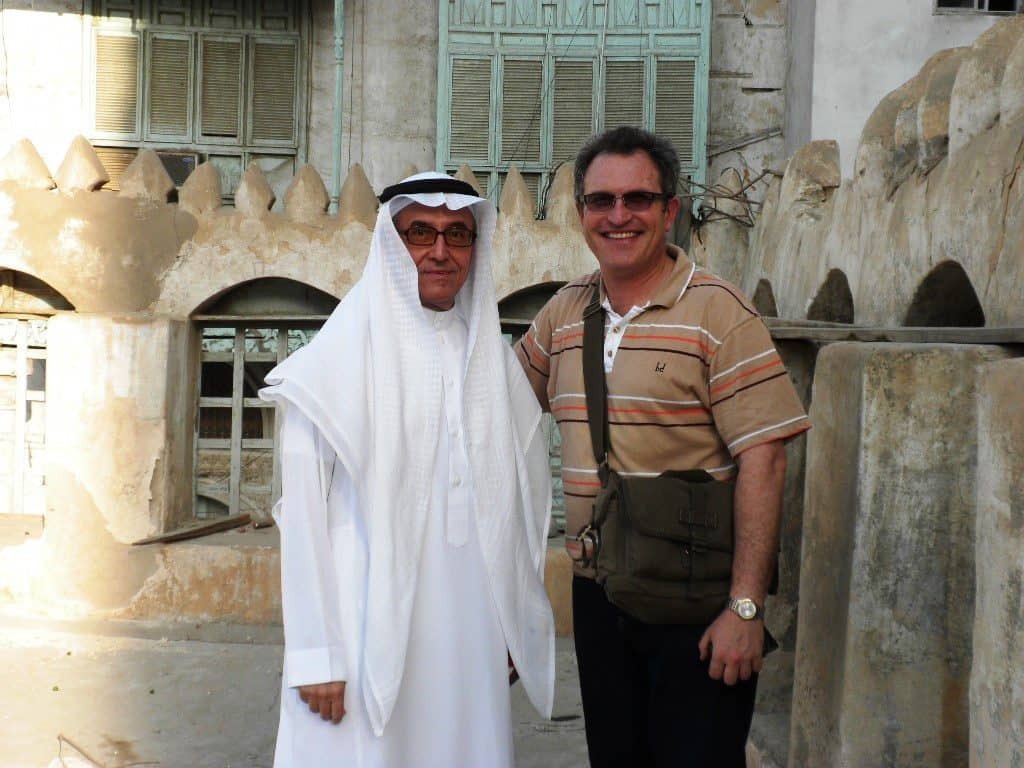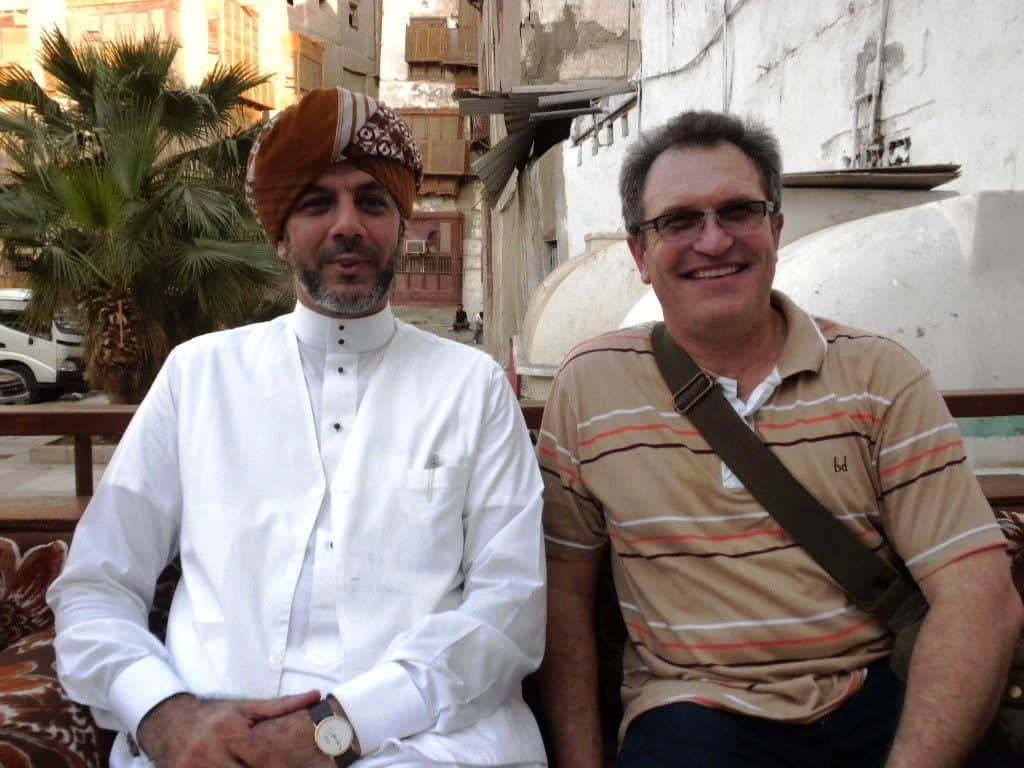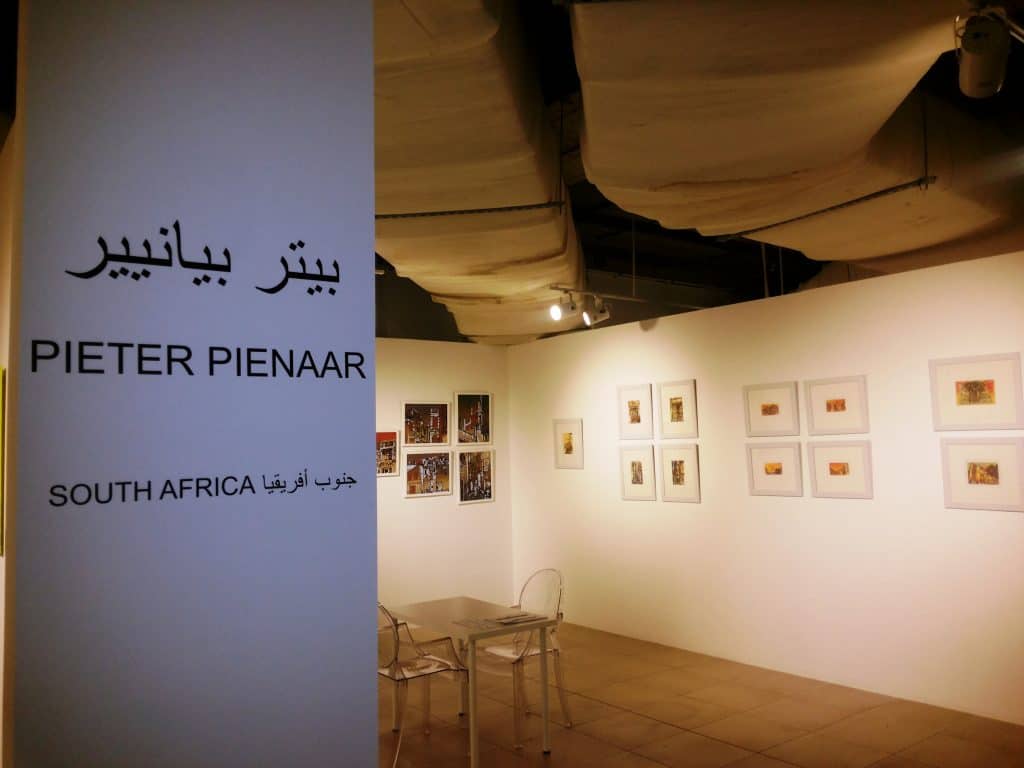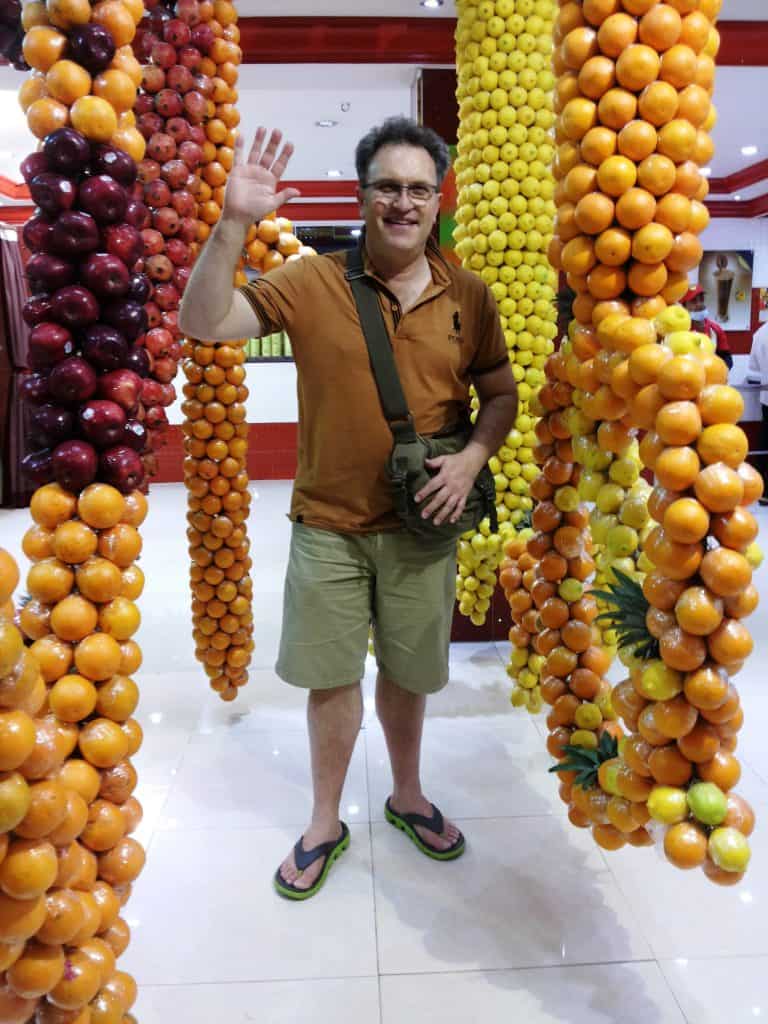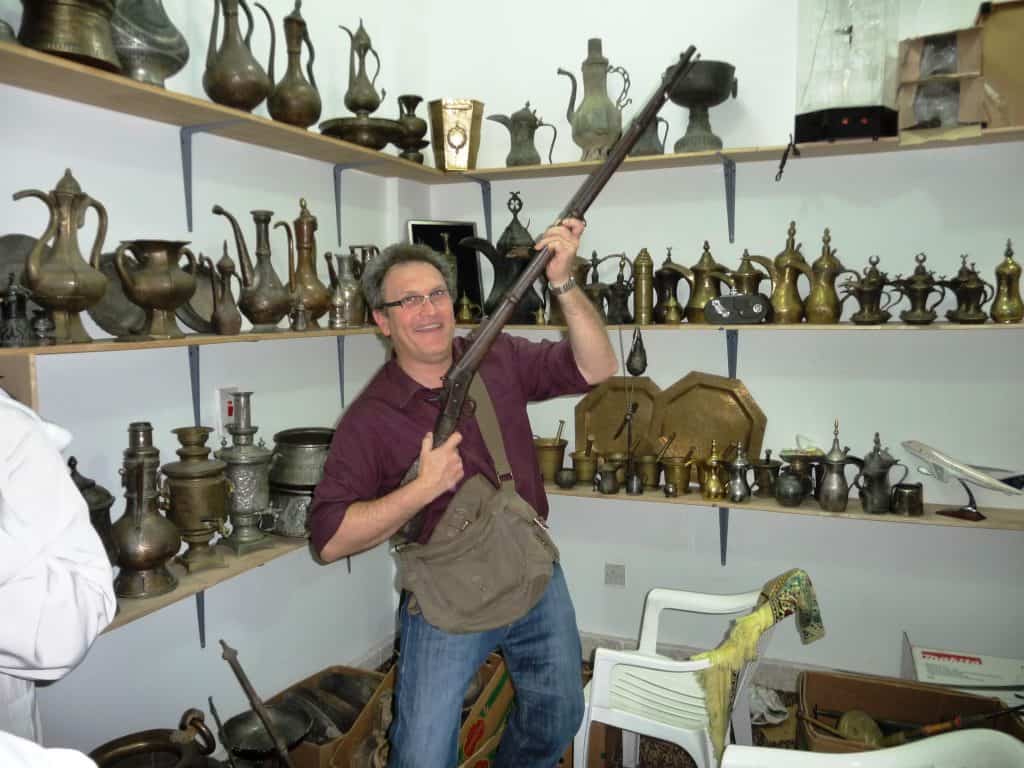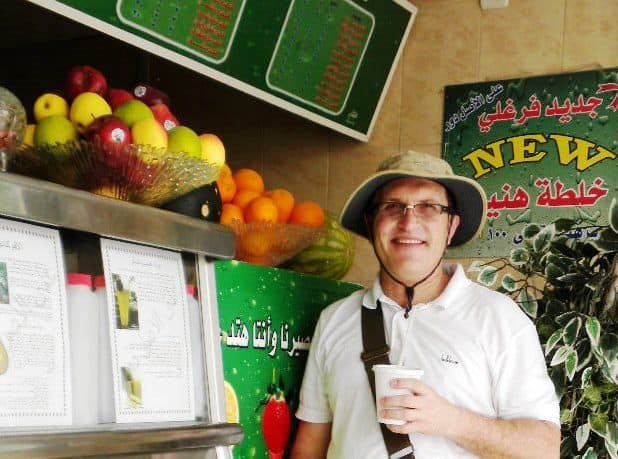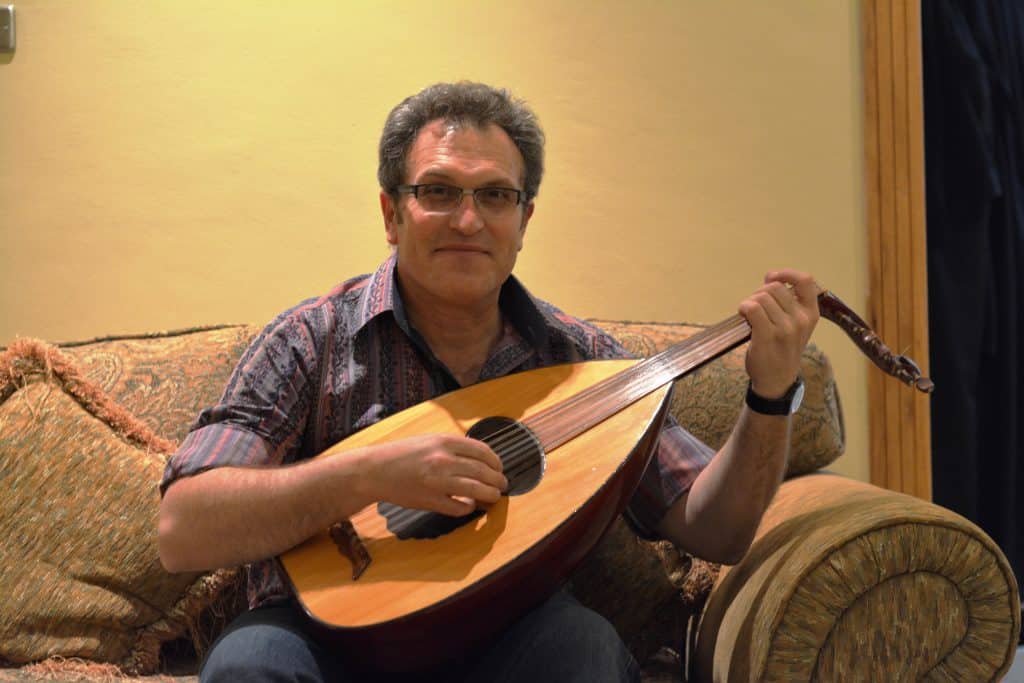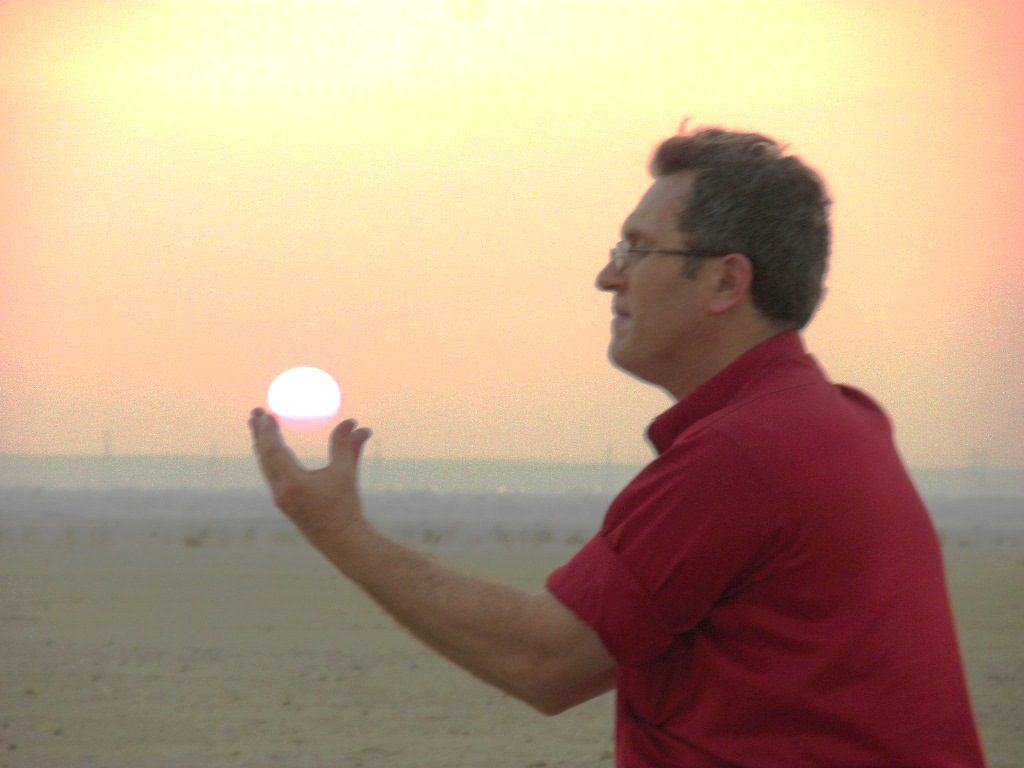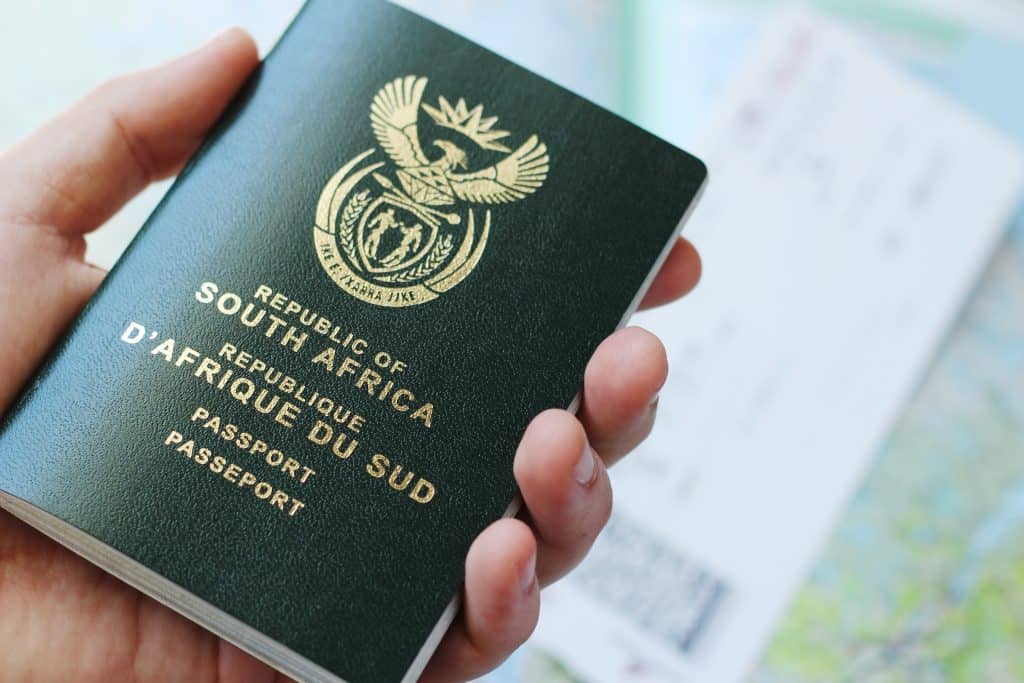Out and About is the column where we talk to people that live in a foreign country, or people that lived and worked in a foreign country, but are now once again back in South Africa. We would like to hear from anyone that wants to share his or her experiences with us. This week we are talking to Pieter Pienaar, who spent the past year in China and previously also lived and worked in Saudi Arabia for four years.
- Tell us more about yourself and where you live.
I am originally a boy from the Kalahari region and lived in Pretoria for approximately 15 years while working as an art teacher. However, I made the decision that the time has come to explore the wide world as a single person. Thereafter I presented art as a subject at a private school for Arabic boys in the Middle East for four years; however it was quite challenging. The school is located in a city next to the Red Sea and my book SHUKRAN is based on these four years. Currently I am living in China, where I suffered a repulse at the hands of the management of an international school that is being managed by foreigners on behalf of the Chinese, but luckily another door opened up for me. I am currently living in Suzhou, but will shortly be moving to Wuhan. Wuhan is known as the Chicago of China seeing as all the transport lines accumulate there. (One could perhaps say that it is the De Aar of South Africa!)
- What are you doing there?
I am an art teacher, but in between the teaching, meeting new people and tasting interesting dishes, I am trying to practice my own art. I even held a jovial abstract exhibit in April of this year in cooperation with a Chinese artist.
- Was it difficult to adjust to another country?
The adjustment in the Middle East was a lot easier when compared with China, because in the Arabic countries there are a lot of South Africans that support each other. If one hears your own language, it makes all your challenges a little bit more bearable and manageable. Here in China, where I have been trying to stay afloat for the better part of the past year, it is however a different ball game. China is big and one’s brain – as foreigner – cannot grasp it, no matter how hard you are trying. In most cases, loneliness and disillusionment are your destiny as a foreigner if you wish to establish yourself in China. It also though depends on where in China you find yourself. In Shanghai it is more cosmopolitan and you can wrap yourself in English, because there are a lot of English speakers. In the rural areas, however, it is quite rough, because sign language is your destiny, but luckily nowadays there are many smart phone applications that enable strangers to communicate with each other, even though it can get a bit comical at times. To summarise: The Arabic countries will be a dream for the Afrikaner, but the Far East will possibly mock you!
- What are the nicest and worst adventures that you have experienced over there?
I am now going to talk about China, because if I talk about Arabia, people are not going to read my book, because there are 385 pages which I used to discuss all my experiences over there. I am now going to “gossip” a little bit about China. According to my experiences, it is Christmas the entire year in China, because you see Christmas decorations everywhere, and also because they probably do not understand what it is all about. China furthermore locally manufactures 80% of all the decorations used by humankind, so they probably decorate the towns because of the beauty thereof. My biggest frustration aside from the language and the complex reality of building friendships, is the bones found in their dishes. I cannot understand why they like bones in their dishes so much. Apparently most Chinese regard it as a delicacy to suck bones clean, and I am not talking about nice boer soup bones, but refer to chicken feet, chicken heads and cold cooked chicken that is chopped nicely into pieces and then served. Let’s leave the topic regarding food for now, but there are however many Chinese dishes that are quite delicious and enchanting.
China is leaf green, beautiful but moist, warm and unapproachable with times and the citizens can appear to be dull, until they however let you into their hearts and once there you will not want to climb out easily. At the beginning of my stay in China it felt as if I was going a bit crazy, but as I got calmer, I came to this conclusion: It is not my country, but I need to make the most of the situation and there is no other choice.
Luckily there are people in every nation, race and language with soft hearts and the one soft heart senses another soft heart and before you know it, the bitter is sweetened and the light enters the darkness. Now, after spending one year in China, I know that I am up for the challenges that lie ahead. Unfortunately there is always the battle to adjust, but luckily it is softened by adventure, delicious food and humanitarian warmth.
- What do you miss most about South Africa?
Of course I miss my family, the warmth of the Boer nation, the quick coffee drinking with your friends, eating and mingling with your friends, the deep conversations in Afrikaans, the African sun and the understandable climate.
- How did immigration affect you?
I didn’t immigrate, but decided to go and work outside the country’s borders for a while, because I couldn’t get better work in South Africa. I really didn’t want to leave South Africa. I was 46 however when I packed my bags, because even with a doctorate degree in educational counselling I couldn’t find another job and after I as white male applied for many jobs and was unsuccessful, I at last reached the end of my beloved “European” patience. However, I hope to retire in South Africa.
- What do you enjoy most about life in China?
Now that the battle with regards to adjustment is over and I wiped away my “crocodile tears” and I can truly embrace myself as a “survivor”, I can start enjoying China. I held an art exhibition of my abstract work over here with the purpose of discovering the art community in Suzhou and it worked just as I had hoped, because now I am part of an “invisible” community which one doesn’t see every day, even though you know they are there. I enjoy the true friends I made here, as well as the beautiful scenery and the feeling of safety which I experience over here. Oh, and I nearly forgot! The Chinese transport network is absolutely fantastic! One can truly flourish without your own set of wheels and I am crazy about it. I have no bicycle or vehicle, only my feet and you can get everywhere, because there are busses for every route and there are also a variety of underground trains. I can erect a monument for the Chinese for their ingenuity and the fact that their trains are always on time.
- Will you return to South Africa?
I am hoping to establish myself in South Africa once again after completion of my “mission”.
- Anything else that you would like to add?
I would like to write a book about this rough year that I had to endure under the management of a “psychopathic headmaster”, but my head is still spinning a little bit. I feel though that I will need to write this book in English and I’m thinking of a title like Hotpot with a Pinch of Curry. I am not yet ready to once again try my hand at a new book, because my heart is still quite raw after the drama at my workplace, but one thing is certain – I am going to report the bullies at my place of work. They are not going to get away with it and might the pen still be mightier than the sword!
Do you live in a foreign country? Tell us about it. Send an email to wereldwyd@afriforum.co.za.

